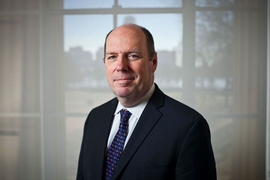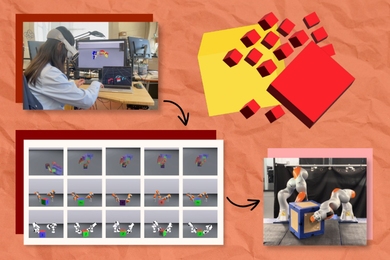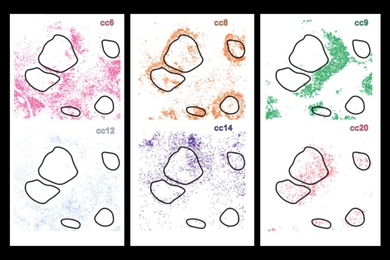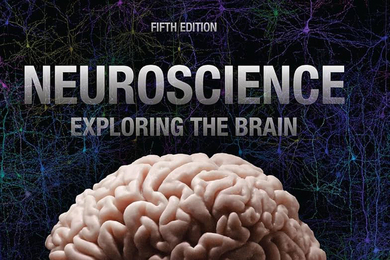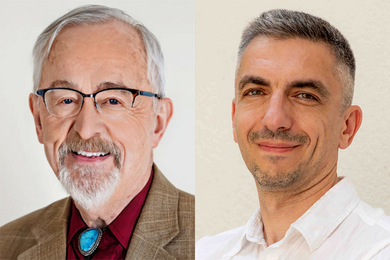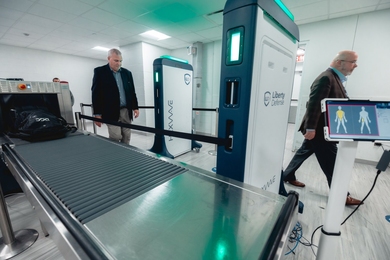The following letter was sent to MIT faculty members on Sept. 11 by Provost Martin A. Schmidt.
Dear Colleagues,
I am writing to share with you a status update from Dean Dan Huttenlocher on the formation of the MIT Stephen A. Schwarzman College of Computing. This is the first of what I expect to be regular updates over the next few months as the initial set of academic units and structure of the college are being determined. As I have mentioned in the past, the college stands on three legs: advancing computer science, building strong connections between computer science and all other disciplines at MIT, and being intentional in contemplating the societal implications of computing. Dean Huttenlocher is working to advance each of these legs as we build the college, and his note below provides an update on where we stand. Out of necessity, the plans for each leg are moving at different paces, but it is important for me to stress that each one of these legs is vital to the college’s overall success.
Sincerely,
Martin A. Schmidt
MIT Schwarzman College of Computing
September 11, 2019 Update
Dan Huttenlocher, Dean
I would first like to thank the MIT community—particularly those who have given so generously of their time and ideas—for their continued support in the creation and establishment of the MIT Schwarzman College of Computing (SCC). While much remains to be done, I am excited to share this update on progress made over the summer, including:
- Establishment of an advisory group, building on the College of Computing Task Force.
- Initial administrative leadership appointments and planned additional appointments over the coming year.
- Process for creating an organizational plan for the college.
- Organizational plan for the Department of Electrical Engineering and Computer Science (EECS).
- Summary of the college’s mission and scope.
1. Advisory Group. I am delighted that members of last year’s College of Computing Task Force Steering Committee have agreed to serve this year as an advisory group for the formation of the SCC, as they have a unique understanding of the opportunities and challenges from their deep involvement in the working groups. The advisory group members are Eran Ben-Joseph, Anantha Chandrakasan, Rick Danheiser, Srinivas Devadas, Benoit Forget, William Freeman, Melissa Nobles, Asu Ozdaglar, Nelson Repenning, Nicholas Roy, Julie Shah, and Troy Van Voorhis. I have also recently met with undergraduate and graduate student groups and will be working with them on avenues for student input, which are likely to largely be through academic units, as those are the main loci of educational programs.
2. Leadership Appointments. I am also pleased to announce initial leadership appointments for the SCC. These take effect immediately and will report directly to me. Daniela Rus will serve as deputy dean of research and continue as director of CSAIL; Asu Ozdaglar will serve as deputy dean of academics and continue as head of EECS; David Kaiser and Julie Shah will serve as co-heads of social and ethical responsibilities of computing; Eileen Ng will serve as assistant dean of administration; moving from the School of Engineering; and Terri Park will serve as director of communications, moving from the Innovation Initiative. Please join me in congratulating them and thanking them for taking on these important new roles.
Over the coming year, we expect to fill other SCC leadership positions, including an assistant or associate dean of equity and inclusion, assistant dean for development, director of a new Center for Advanced Study of Computing, and leadership of a new teaching collaborative for both disciplinary and interdisciplinary computing classes, once the structure of the college and these additional roles becomes more fully defined. We further expect that Institute for Data, Systems, and Society (IDSS), Center for Computational Engineering (CCE), Computer Science and Artificial Intelligence Lab (CSAIL), Laboratory for Information and Decision Systems (LIDS), the Quest for Intelligence, and perhaps other units, will likely become part of the SCC as planning proceeds, and that their directors will be asked to remain in their roles.
3. College Planning Process. Based on last spring’s College of Computing Task Force Working Group reports, a strawman organizational plan for the college is being developed through an iterative process. The school deans and the aforementioned advisory group are reviewing an early draft. A revised strawman will then be circulated to the school councils, and then to the full MIT faculty for feedback and final revision. We expect to begin sharing the strawman more broadly in the coming months through forums to solicit feedback from the MIT community.
We do not foresee much in the way of curriculum or subject changes this school year, as these are defined by the faculty of academic units through deliberative processes, although there will likely be some pilots.
4. EECS Plan. An organizational plan for EECS, developed over the summer based on the task force working group reports, is now being implemented. This plan also was developed iteratively, first involving the co-chairs of the Organizational Structure and Faculty Appointments working groups, followed by the Engineering Council and the EECS faculty.
The plan calls for the department to form three overlapping academic units, as suggested by the Organizational Structure Working Group. These units are termed faculties: a faculty of electrical engineering (EE), a faculty of computer science (CS), and a faculty of artificial intelligence and decision making (AI+D). Each faculty will have a head, and will be overseen by the head of EECS. The faculties will be the main locus of faculty recruiting, mentoring, and promotion for the department. The department will report jointly to the School of Engineering and the Schwarzman College of Computing, and will remain responsible for Course 6. A search committee for the heads of the three faculties has just been formed. No specific curricular changes are foreseen at this time, as those will take time and will be led by the faculties and the department.
5. Mission and Scope. The planning efforts for the Schwarzman College of Computing are driven by the following mission and scope of activities.
Widespread advances in computing—from hardware to software to algorithms to artificial intelligence—have improved people’s lives in myriad ways, with numerous promising opportunities on the horizon. Yet at the same time, we face critical and growing challenges regarding the social and ethical implications and responsibilities of computing, particularly with the increasing applicability of artificial intelligence. Moreover, despite the unprecedented growth of computer science, artificial intelligence, and related academic program areas, substantial unmet demand for expertise in computing remains, as does the constant need to keep up with rapidly changing academic content.
The mission of the MIT Stephen A. Schwarzman College of Computing (SCC) is to address the challenges and opportunities of the computing age by transforming the capabilities of academia in three key areas:
- Computing fields: Support the rapid growth and evolution of computer science and computational areas of allied fields such as electrical engineering, as reflected notably in the rise of artificial intelligence;
- Computing across disciplines: Facilitate productive research and teaching collaborations between computing and other fields, rather than place one field in service of another;
- Social and ethical aspects of computing: Lead the development of and changes in academic research and education, and effectively inform practice and policy in industry and government.
These three areas are integral to the SCC mission. Moreover, they are not independent but rather should inform and amplify one another.
Based on the College of Computing Task Force Working Group reports and follow-on planning over the summer, the SCC is expected to:
- Have academic units that are more flexible and interconnected than conventional departments and schools while simultaneously reinforcing MIT’s strength in computing fields such as CS and large parts of EE, which generally have traditional departments at other top institutions. The SCC is expected to have multiple types of academic structures to meet this variety of needs.
- Involve faculty from a broad range of departments and schools who are engaged in computing education and research through a variety of programs and affiliations including: (i) the Common Ground, a teaching collaborative for both disciplinary and interdisciplinary computing classes, (ii) centers that offer graduate programs in computing, (iii) computing research labs and centers, and (iv) additional scholarly activities in computing, including workshops and other convenings.
- Lead in the social and ethical aspects of computing with: (i) education that helps develop “habits of mind and action” for those who create and deploy computing technologies, (ii) research that brings technological, social science, and humanistic approaches together, and (iii) impact on government and corporate policy as well as the development of a better understanding among the general public.
- Lead in the rapid evolution of computing fields, both in research and education, currently exemplified by the rise of areas such as AI and machine learning (ML).
- Deliver outstanding undergraduate and graduate education in: (i) CS and EE, (ii) evolving areas of computing such as AI/ML and others, (iii) computing across the disciplines, and (iv) social and ethical aspects of computing.
- Improve equity and inclusion in computing at MIT with the aim of helping address diversity in computing with regard to gender, race, and range of backgrounds and experience. Focus on increasing the diversity of top faculty candidates, with new programs for faculty, postdocs, and PhD students, as well as improvements to existing programs. Broaden participation in computing classes and academic programs at all levels, including improvements to the climate and the development of more effective connections with other, more diverse, disciplines.
The SCC will include both existing and new academic units and programs. Bringing existing activities together will help facilitate coordination and alignment of computing education and research as well as provide new opportunities for improvement, such as bringing more coordination to the academic programs that mix computing and other disciplines and to the teaching of social and ethical issues in computing. Creating new programs and units will help address areas that are not well covered by existing ones and also help in fostering new connections.



